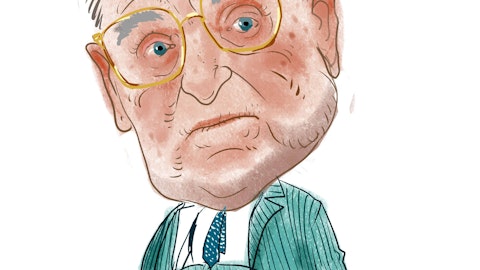When it comes to health care companies, there’s no bigger name than the largest firm in the business: Johnson & Johnson (NYSE:JNJ) .

Battling the blockbusters
Let’s start by diving into the biggest competition for Johnson & Johnson (NYSE:JNJ)’s biggest drug: Anti-inflammatory therapy Remicade, which made more than $6 billion for the company last year and grew revenues by nearly 12% year-over-year. Remicade’s got many uses from treating rheumatoid arthritis to Crohn’s disease and more, and its usefulness has made it a standout drug for years.
The immunology market’s a big one, however, and Remicade’s toughest rivals are bestsellers by their own rights.AbbVie Inc (NYSE:ABBV)‘s anti-inflammatory medication Humira, used to treat several indications including the aforementioned rheumatoid arthritis, ranks as one of the best-selling drugs in history. Humira pulled in bank-breaking sales of $9.3 billion last year, and with a few more years of patent protection still left, AbbVie’s blockbuster will continue to be one of Johnson & Johnson’s biggest challengers.
Right up there with Humira is Amgen, Inc. (NASDAQ:AMGN) and Pfizer Inc. (NYSE:PFE)‘s Enbrel. The immunology drug and titan in the rheumatology field has years of patent protection left and, like Humira, outsold Remicade last year. Enbrel recorded more than $8 billion in sales last year, although Amgen and Pfizer split the proceeds: The latter controls the drug’s sales outside of the U.S. and Canada. Given this drug’s patent exclusivity will last the better part of the next decade, however, J&J investors will have to keep a close eye on this Remicade rival.
However, J&J’s introduced its own new immunology competitor to fight back against Enbrel and Humira’s power. Psoriasis drug Stelara has already reached blockbuster status and saw outstanding sales growth of nearly 39% last year. J&J filed for approval of the drug in treating psoriatic arthritis in the EU and U.S.; if it wins those approvals, Stelara will have a new source of serious revenue that will threaten Enbrel and Humira’s positions atop the pharmaceutical world.
Beyond immunology
Johnson & Johnson (NYSE:JNJ)’s pharmaceuticals branch is more than just immunology, however — and other drugs bring in more and more rivals to watch.
Remicade might be safe from patent expiration, but some of J&J’s other drugs aren’t so lucky. Sales of the Levaquin and Floxin family of infectious disease drugs, which had recorded blockbuster sales as recently as 2010, have been hammered by generic competition to the point of less than $100 million in 2012 revenue. Neuroscience drug Concerta has also seen its revenue chipped away by generic competitors; while the drug still managed to exceed $1 billion in revenue last year, it saw a 15% sales decline year-over-year and is poised to dip below that level in 2013.


